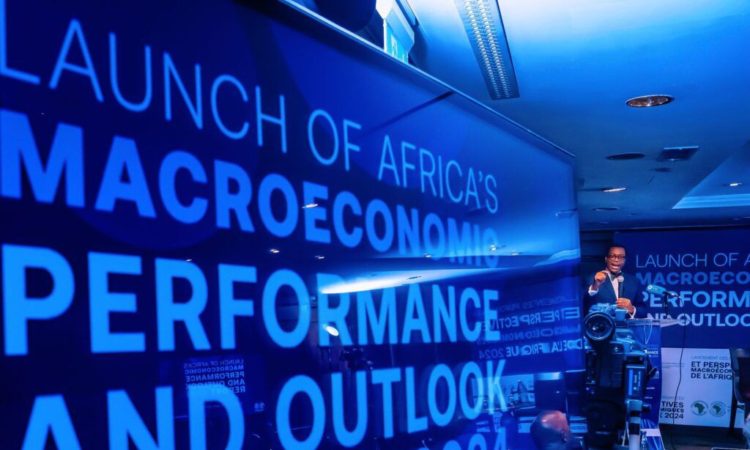
Africa will account for eleven of the world’s 20 fastest-growing economies in 2024, the African Development Bank Group(AfDB) said in its latest Macroeconomic Performance and Outlook.
On the overall scale, real gross domestic product (GDP) growth for the continent is projected to average 3.8 percent and 4.2 percent in 2024 and 2025, respectively. This is higher than projected global averages of 2.9 percent and 3.2 percent, the report said.
The continent is set to remain the second-fastest-growing region after Asia.
The top 11 African countries projected to experience strong economic performance forecast are:
Niger (11.2%),
Senegal (8.2%),
Libya (7.9%),
Rwanda (7.2%),
Cote d’Ivoire (6.8%),
Ethiopia (6.7%),
Benin (6.4%),
Djibouti (6.2%),
Tanzania (6.1%),
Togo (6%), and Uganda at 6%.
“Despite the challenging global and regional economic environment, 15 African countries have posted output expansions of more than 5 percent,” Bank Group President Dr Akinwumi Adesina said, calling for larger pools of financing and several policy interventions to further boost Africa’s growth.
Africa’s Macroeconomic Performance and Outlook, a biannual publication released in the first and third quarters of every year, complements the existing African Economic Outlook (AEO), which focuses on key emerging policy issues relevant to the continent’s development.
The report provides an up-to-date evidence-based assessment of the continent’s recent macroeconomic performance and short-to-medium-term outlook amid dynamic global economic developments.
The latest report is calling for cautious optimism given the challenges posed by global and regional risks.
These risks include rising geopolitical tensions, increased regional conflicts, and political instability—all of which could disrupt trade and investment flows, and perpetuate inflationary pressures.
President Adesina emphasised that fiscal deficits have improved, as faster-than-expected recovery from the pandemic helped shore up revenue.
He explained further: “This has led to a stabilization of the average fiscal deficit at 4.9% in 2023, like 2022, but significantly less than the 6.9 percent average fiscal deficit of 2020. The stabilization is also due to the fiscal consolidation measures, especially in countries with elevated risks of debt distress.”
However, he was swift to caution that, with the global economy mired in uncertainty, the fiscal positions of the African continent will continue to be vulnerable to global shocks.
The report shows that the medium-term growth outlook for the continent’s five regions is slowly improving, a pointer to the continued resilience of Africa’s economies.
Presenting the key findings of the report, the African Development Bank’s Chief Economist and Vice President, Prof. Kevin Urama said: “Growth in Africa’s top-performing economies has benefitted from a range of factors, including declining commodity dependence through economic diversification, increasing strategic investment in key growth sectors, and rising both public and private consumption, as well as positive developments in key export markets.”
“Africa’s economic growth is projected to regain moderate strength as long as the global economy remains resilient, disinflation continues, investment in infrastructure projects remains buoyant, and progress is sustained on debt restructuring and fiscal consolidation,” he added.
“The future of Africa rests on economic integration. Our small economies are not competitive in the global market. A healthy internal African trade market can ensure value-added and intra-African production of manufactured goods,” said Commissioner for Economic Development, Trade, Tourism, Industry and Minerals, African Union Commission, Ambassador Albert Muchanga.
He assured that the report and recommendations will be made available to African heads of state and that the report will be useful when the African Union makes its proposals to the G20- an informal gathering of many of the world’s largest economies to which the African Union was admitted last year.
-AfDB







